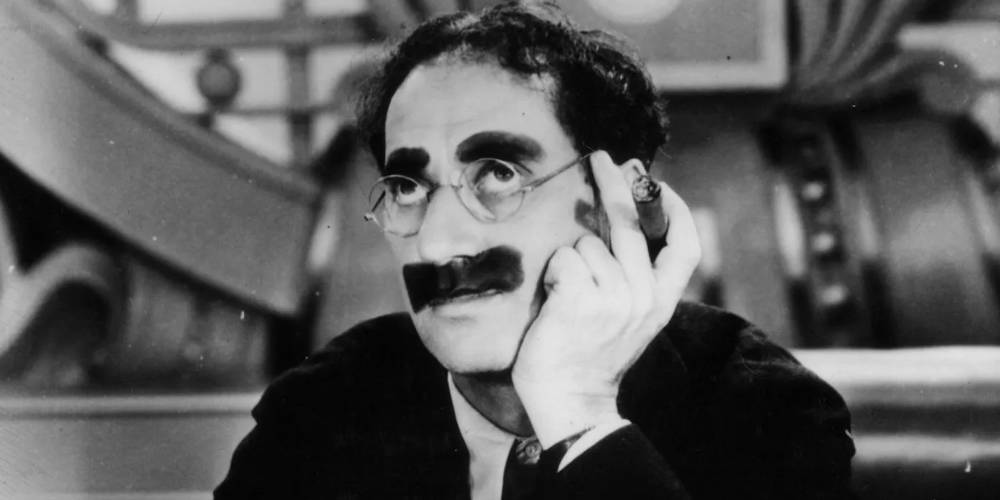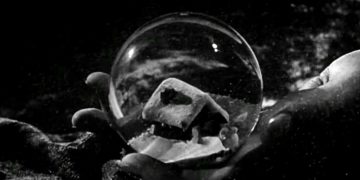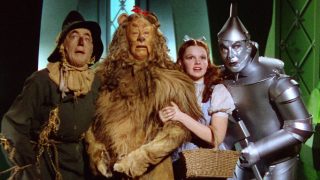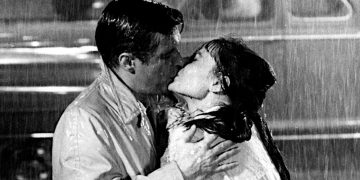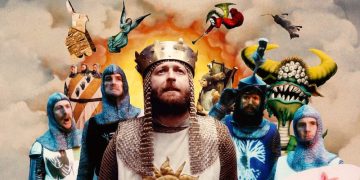The Marx Brothers—consisting of Chico, Groucho, Gummo, Harpo, and Zeppo—revolutionized cinema about a century ago. It's a pity how many of us don't remember them.
Despite how long ago their movies came out, they're still worth watching today, especially if you consider yourself a cinephile.
Here are the best Marx Brothers movies ever made, which are great entry points if you want to experience their anarchic, nonsensical, and satirical humor first-hand. We can't let them be forgotten!
5. The Cocoanuts (1929)
The story is set during the Florida land boom of the 1920s. Hotel de Cocoanut is run by Mr. Hammer (Groucho), with Chico and Harpo there for one purpose: conning the supposedly wealthy guests.
In reality, the hotel has very few paying guests. Mrs. Potter is one of those guests, occupied with arranging the wedding of her daughter Polly. She wants Polly to get married to a wealthy man, but Polly is in love with one of the hotel clerks.
Often the Marx Brothers worked against institutional forces—like helping lovers in danger or good characters down on their luck—and that's certainly the case with The Cocoanuts: Groucho, Chico, and Harpo try their best to block the arranged wedding.
The plot is thin and the story is simple, which was common in the Marx Brothers' filmography, but it's all very charming and leaves ample space for gags and comical sketches. The Cocoanuts also features several live-recorded dance routines and singing performances.
4. Animal Crackers (1930)
Animal Crackers was adapted from a Broadway musical. It stars the Marx Brothers and Margaret Dumont, who appears in almost all their films, and this film remains one of their best-known productions.
The renowned explorer Captain Geoffrey T. Spaulding has just returned from Africa, so Mrs. Rittenhouse holds a party in his honor. There, a prestigious painting will be shown as a treat for the explorer.
On top of that, there's the subplot with John and Arabella. Young and in love, they struggle to make a living because John's talent as a painter is not yet recognized.
Cut back to the painting, which somehow ends up being stolen and must be replaced! If only there was a talented painter around?
3. Horse Feathers (1932)
Horse Feathers centers on two fictional institutions—Darwin College and Huxley College—as they compete against each other in a game of college football.
Huxley's president Professor Quincy Adams Wagstaff (Groucho) wants them to win. But at what cost? How far will he go? Well, he secretly recruits professional football players to the team.
At least, that was his intent; he mistakenly recruits Harpo and Chico instead. The duo still help him with the game, but they rely on unorthodox techniques and antics.
Horse Feathers features the famous musical piece "I'm against it!" which perfectly encapsulates the Marx Brothers' anarchist attitude towards any kind of establishment institution.
I mean, the song really lays it bare: "I don't know what they have to say, it makes no difference anyway. Whatever it is, I'm against it!"
2. Duck Soup (1933)
Rufus T. Firefly (Groucho) is the new dictator of the troubled realm of Freedonia, who must go to war with neighboring Sylvania. And for what? To win over a lady, of course!
With the help of two spies, Pinky (Harpo) and Chicolini (Chico), Firefly tries his best to win the war—at least on the surface.
The thing is, Duck Soup actually isn't about war at all. It's about all the nonsensical behaviors that war entails.
The Marx Brothers have the ability to turn any scenario into a stage for humor. War is, for them, just another kind of stage.
Duck Soup features one of the most famous scenes in the Marx Brothers' repertoire: the mirror scene. With it, they incorporated surrealism and satire into the more popular slapstick and screwball genres of the time.
The Marx Brothers subjected a big audience to hidden and subtle revolutionary messages, all disguised as gags. Duck Soup is second on this list but it's definitely one of their best works.
1. A Night at the Opera (1935)
A Night at the Opera stars Groucho, Chico, Harpo, and Margaret Dumont (who was "practically the fifth Marx brother" according to Groucho). In this film, we embark on an opera-themed plot.
Business manager Otis B. Driftwood convinces wealthy widow Mrs. Claypool to invest a great sum in the New York Opera Company, which would allow them to pursue Rodolfo Lassparri, the incredible but ill-tempered tenor.
They embark on a journey to reach New York, along with several other characters who join them, including Rosa (a talented and successful opera singer) who's in love with Ricardo.
There's also Fiorello (Chico) and Tomasso (Harpo), who don't have a plan but like to be included. They're great musicians and all they want is for Ricardo to make it on the big stage.
Together with Mr. Driftwood, they all head to New York—but does any of that really matter? The real point here, as is the case in all of the Marx Brothers films, is all the laughter we experience along the way.
